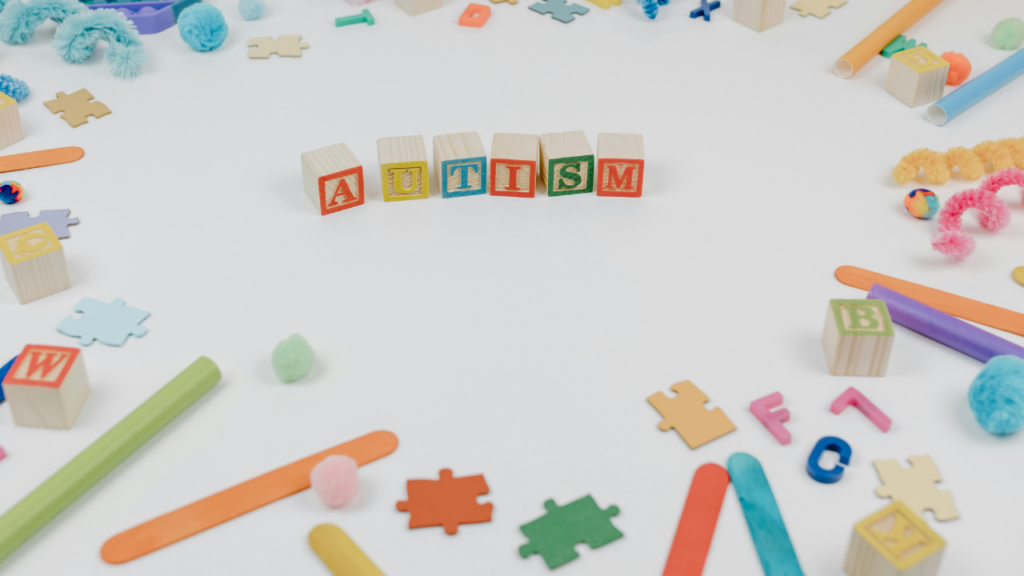Autism is often misunderstood. It’s sometimes seen as a single, uniform condition—people mistakenly believe that “all individuals with autism are the same.” In reality, autism is a spectrum, meaning it can look very different from one person to another. At Norfolk Autism Center, we want to clear up these misconceptions by sharing accurate information and offering compassionate, individualized care grounded in evidence-based Applied Behavior Analysis (ABA) principles.
Why “Spectrum” Matters
In the past, terms like Asperger’s syndrome, PDD-NOS, and classic autism were used to describe different “types” of autism. Now, professionals typically use the umbrella term Autism Spectrum Disorder (ASD) to recognize the diverse ways autism can present. Some individuals on the spectrum may speak fluently and excel academically but struggle in social situations. Others may have limited communication abilities and need more support with everyday tasks. Emphasizing the spectrum aspect acknowledges that each person has a unique set of strengths, challenges, and preferences.
The Many Presentations of Autism
Because autism is a spectrum, it’s helpful to look at some of the most common ways it appears in day-to-day life. Keep in mind that not every individual will show all of these traits, and each person’s experience is shaped by their environment, support system, and personal journey.
Communication Styles
- Verbal vs. Nonverbal: Some individuals on the autism spectrum speak fluently and use a large vocabulary, while others communicate primarily through gestures, pictures, or technology.
- Echolalia and Repetitive Speech: You might notice some people repeating words or phrases. This can be a way to process information or express excitement, anxiety, or a need for clarification.
- Literal Interpretation: Many individuals with autism tend to interpret language very literally, which can sometimes lead to misunderstandings of figurative speech or sarcasm.
Sensory Differences
- Sensory Sensitivities: Light, sound, texture, or smell can feel overwhelming or even painful for someone on the spectrum. For example, fluorescent lights in a classroom might be distracting or distressing.
- Sensory-Seeking Behaviors: Conversely, some individuals seek out certain sensations, like spinning, rocking, or looking closely at moving objects, to help regulate their sensory experiences.
- Personalized Approaches: Recognizing these differences allows caregivers, educators, and therapists to adapt environments—like using noise-canceling headphones, softer lighting, or tactile activities—to support comfort and learning.
Social Interaction Patterns
- Social Cues: Many people on the autism spectrum find it challenging to interpret body language, facial expressions, or tone of voice. This can create barriers to making friends or participating in group activities.
- Focused Interests: Some individuals develop deep, specialized interests. While these focused interests can be a source of pride and skill development, they can also make it harder to relate to peers who don’t share the same passion.
- Desire for Connection: Contrary to another common misconception, many individuals with autism do want to form friendships and close relationships—but they may need extra support to learn the social rules that come more easily to others.

Autism is a spectrum, meaning it can look very different from one person to another
How Norfolk Autism Center Approaches ABA Therapy
At Norfolk Autism Center, we believe that every person on the autism spectrum deserves a tailored approach that celebrates their individuality. Applied Behavior Analysis (ABA) is one of the most widely researched and trusted therapies for autism, and our experienced team uses ABA strategies in a flexible, compassionate way to help children and families thrive.
Personalized Treatment Plans
Our goal is to create comprehensive support that meets each child where they are. We start with a thorough assessment to understand their strengths, challenges, and goals. From there, we craft an individualized treatment plan that might include:
- Communication Goals: Developing new language skills, learning alternative ways to communicate (like using a picture-exchange system), or enhancing clarity in verbal conversation.
- Social Skills Training: Practicing how to initiate conversations, recognize social cues, and engage with peers in cooperative play settings.
- Behavioral Strategies: Teaching coping tools for intense emotions, anxieties, or sensory overstimulation so children can navigate daily routines with confidence.
- Daily Living Skills: Offering support for tasks like dressing, eating, hygiene, or safety awareness, depending on each child’s developmental stage.
Family-Centered Support
Autism doesn’t just affect individuals—it affects entire families. That’s why our team values close collaboration with parents, siblings, and caregivers. We offer:
- Parent Training: Equipping families with strategies to support their child’s progress at home, reinforce positive behaviors, and foster independence.
- School Collaboration: Communicating with teachers and school teams ensures a consistent approach and a supportive learning environment.
- Community Involvement: We help families connect with resources, support groups, and social opportunities so children can practice new skills in real-world settings.
A Commitment to Compassionate Care
We understand that each family’s journey with autism is unique. Some children need minimal assistance, while others benefit from ongoing, intensive support. No matter where your child lands on the spectrum, our approach at Norfolk Autism Center remains the same: treating each individual with respect, understanding, and evidence-based strategies that empower real growth.
Looking Ahead
As our understanding of autism continues to evolve, so too does our commitment to being at the forefront of specialized care. By focusing on personalized treatment plans, family collaboration, and ongoing research into ABA best practices, we aim to provide hope and tangible progress for every child who walks through our doors.
If you have questions about our services or want to learn more about how ABA therapy could benefit your family, please reach out to us at Norfolk Autism Center. We’re here to help guide you every step of the way, offering compassionate, individualized care that meets your child where they are—so they can reach their full potential.




